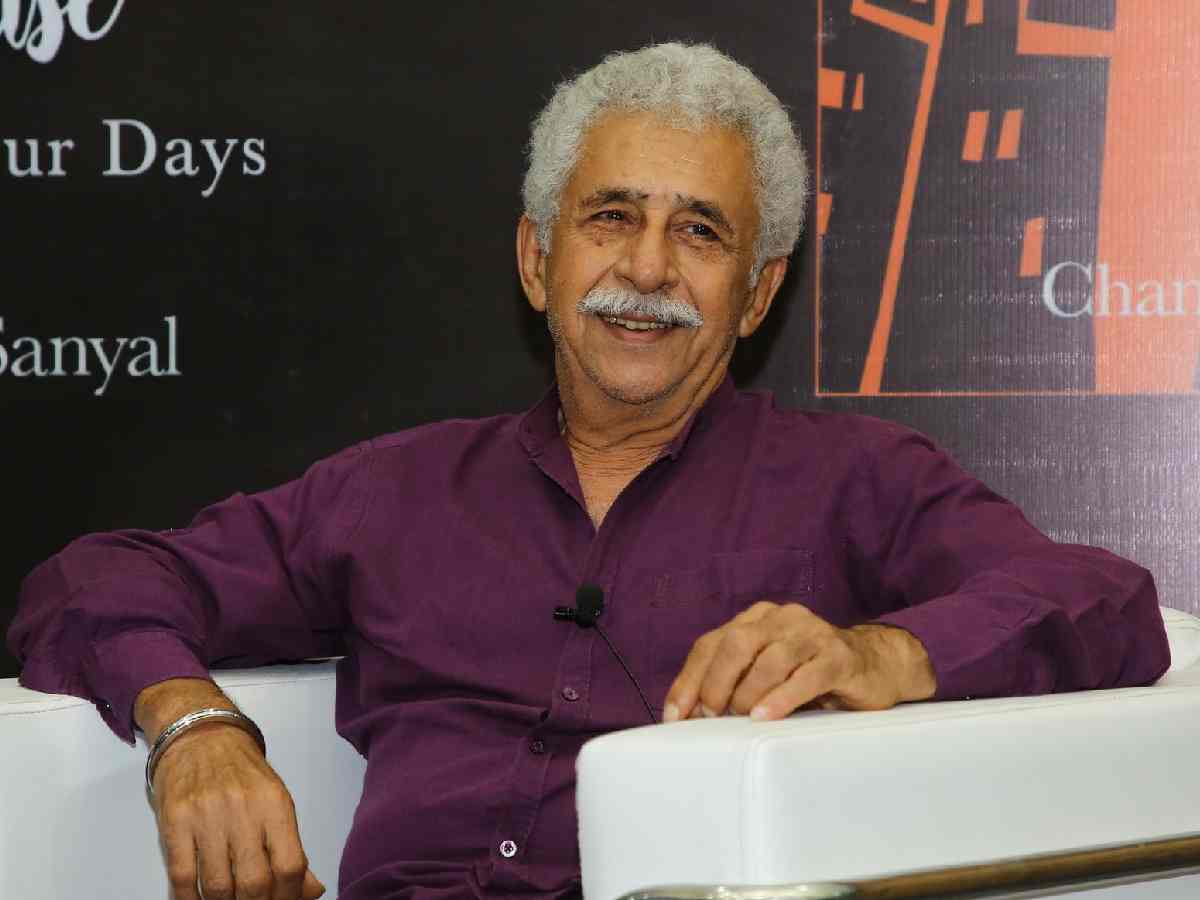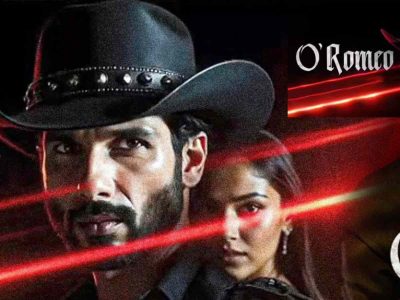Naseeruddin Shah: The return of some great actors to the theatre scene in Delhi over the past decade has done wonders for the medium. It has not only brought patrons who were yearning for better content back to the theatres. It has also helped usher in star-struck audiences to the theatre.
One remembers when actor Naseeruddin Shah brought his first play on the Delhi stage, ‘Ismat Aapa Ke Naam’, Shri Ram Centre was overloaded, and Shah had to repeat a show. A similar thing happened when Shabana Azmi and Javed Akhtar brought ‘Kaifi Aur Main’ and when Farookh Sheikh and Sonali Bendre were seen in ‘Aapki Soniya’. Wherever the plays were scheduled — Kamani, LTG, FICCI, Sri Ram Centre, India Habitat Centre or India Islamic Culture Centre — the audience barely missed it. This is how the ‘star-studded’ Delhi Theatre Festival earned a name for itself for both commercial and creative reasons.
Also read: Panchayat completely changed my life, opened new doors for me: Faisal Malik
The three-day festival, which is in its fifth edition that starts on September 21, now seems to have become entirely dependent on film actors to draw the audience. No wonder some of the finest actors are again bringing plays again to the city.
Shah is ready to stage ‘Old World’ again. Interestingly, the story of the play, which Shah and his immensely talented actor wife Ratna Pathak Shah are performing, was with them for 20 years. It was re-written by Sudhanshu Mishra, producer/ director Sudhir Mishra’s brother. Naseeruddin and Ratna incidentally came to enact it at an age where they could identify with the issues and concerns raised in the play.
“Old World is a Soviet-era play of the ’60s written by Alexei Arbuzov, which we have adapted to our situation. It is about two septuagenarians — a doctor and his patient — in a rest cure home in Ranikhet. Both find something in common at a time when they imagine there’s nothing more than life can offer or throw at them, and they actually find a new lease of life,” Shah explains, adding matter of-factly, “It’s because we are both playing our actual ages that we felt this play is for us. Twenty years ago, we would have had to play aged!”
In an interesting workshop cum-lecture that Shah delivered at FTII almost a decade ago, students were enticed by what many of his contemporaries wouldn’t speak about – the nitty gritty of ‘teaching how to play’ a role. He had explained that acting isn’t about jumping into a scene and performing it, like holding an imaginary cup and drinking from it. It is about how you do or react in your daily routine and daily life. For instance, cleaning your spectacles from your shirt, wearing socks and shoes, and so on that is not taught! This is reflected in the students’ performances in both films and on the live stage. He had pointed out how the country’s premium drama school — the National School of Drama (NSD) — also needed to look into such issues.
On being reminded about it, Shah says, “The experience of NSD is certainly beneficial but not essential. Students there learn the vocabulary of theatre, and in Ebrahim Alkazi’s (NSD’s first chairperson and founder) time, the emphasis was on being meticulous and disciplined and looking after every detail. Still, not much was revealed to the actors about acting.”
He adds, “Apart from having an acting teacher who has actual experience of the work, the students should not be pampered much. They should be made aware of the obstacles of doing theatre in the real world and be prepared for that. The fact that this is not done is the reason so few Hindustani-speaking graduates of NSD actually do theatre after graduating from the institute.”
However, Shah does not forget to recall the names of a few people at the premier acting school who influenced him and honed his theatre skills. The list includes E Alkazi, Sataydev Dubey, and Om Puri. Shah weaves what he learnt from them into his training.
My real trainers
Talking about his time at the NSD, Shah says, “From Alkazi (and Om Puri), I learnt about discipline. From Alkazi, the way scenes should be composed, why attention should be paid to every little detail, how hard an actor should work and how much preparation goes into creating a production. His vast knowledge about almost anything made me feel really small so I guess I also learnt humility (unwittingly) from him!”
He adds, “Dubey was the opposite — anarchic, badly behaved, not really presentable as a person, but what he and Alkazi (who detested each other) had in common was an uncanny instinct for what looks right on the stage. They would both give you moves on stage and insist on them without explaining. With more practise, those moves would begin to make sense.”
However, unlike Alkazi, Dubey gave importance to the actors and considered it his job to nurture them, says Shah. “Himself a dreadful actor, he (Dubey) somehow knew how actors feel. He went for the guts of the text. Alkazi aimed to finish the production.”
He counts the paucity of promising playwrights as one of the theatre’s biggest issues.
Also read: I spent all my time at NSD discussing theatre, actors, and cinema: Swanand Kirkire
No successors!
“The biggest issue is the paucity of playwrights. In the ‘70s, with (Mohan) Rakesh, (Girish) Karnad, (Vijay) Tendulkar and Badal Sarkar at the peak of their powers, one was certain that a renaissance was in the offing. Unfortunately, they have had no successors! One wonders why. Only the seed sown by Habib Tanvir seems to have sprouted,” says the noted thespian.
“On the positive side, though”, he adds, “the growing interest of much of the younger generation in theatre is definitely a harbinger of a bright future. Many young people, in Mumbai at least, are not only watching plays but also writing and staging them, not often with very good results. But their commitment and the joy they take in the work is wonderful. And one has to start somewhere.”
When asked whether Indian theatre needs to learn something from the West, Shah says aping countries or regions never helps.
“We don’t need to learn anything from the West. It’s a different world out there. What we need to do is recognise and nurture our own traditional forms and draw something from them in the hope of finding a truly indigenous way of performing.” We should stop being limited by the proscenium, is the advice of the veteran.
Delhi Theatre Festival isn’t where Shah’s creative journey this September ends. His next production is “Dastangoi – Two Stories”, written by Ashok Lal and performed by Ratna and Shah at Studio Safdar on September 24 in New Delhi. Those who can’t catch Shah and Ratna during the theatre festival or can’t get enough of them know where to head next.
The writer is a senior journalist, poet, co-author of ‘Muslims in Media’ and art and music curator.




